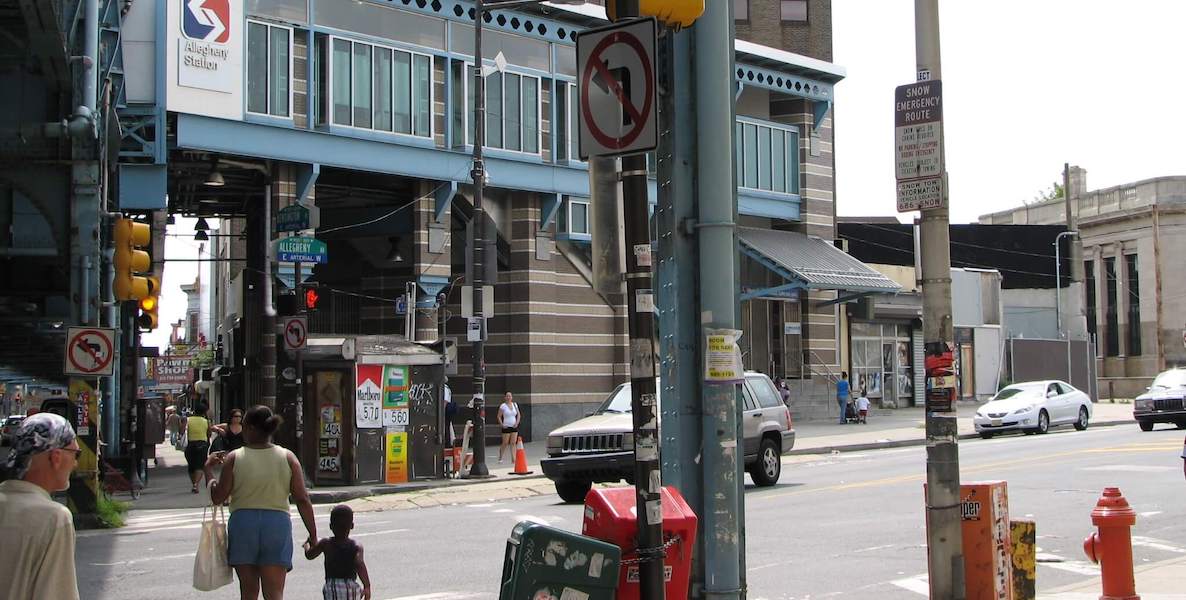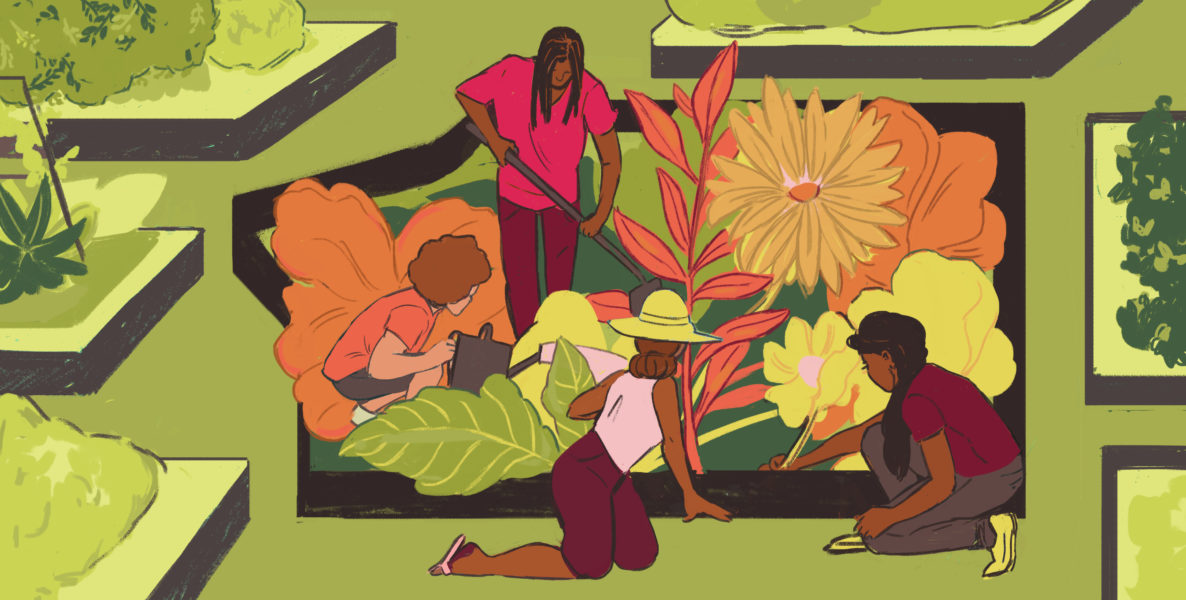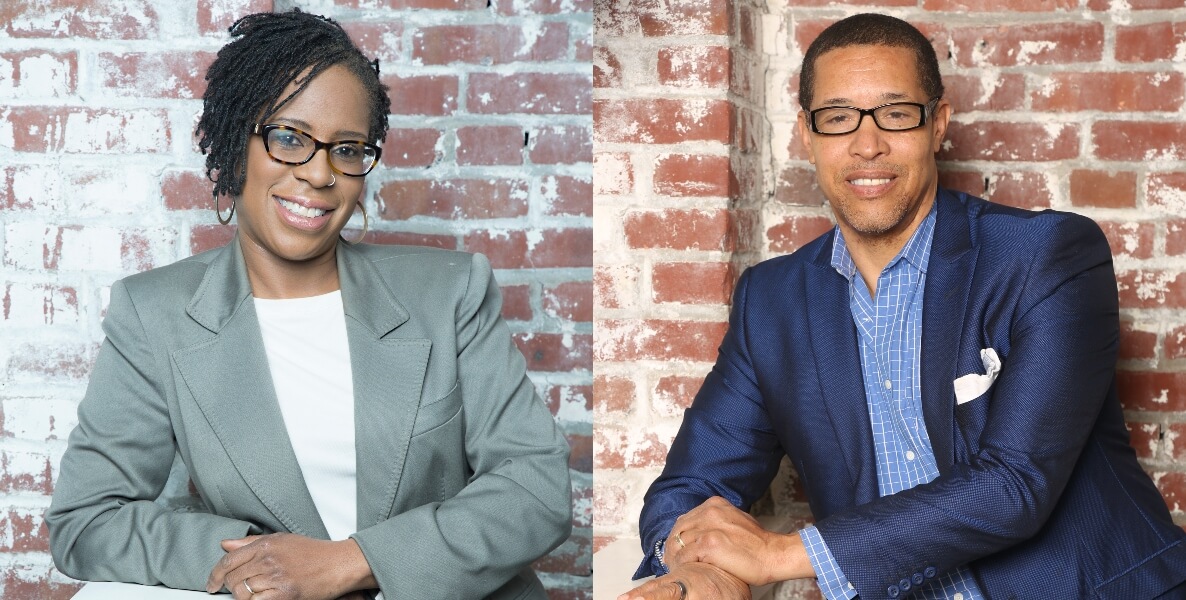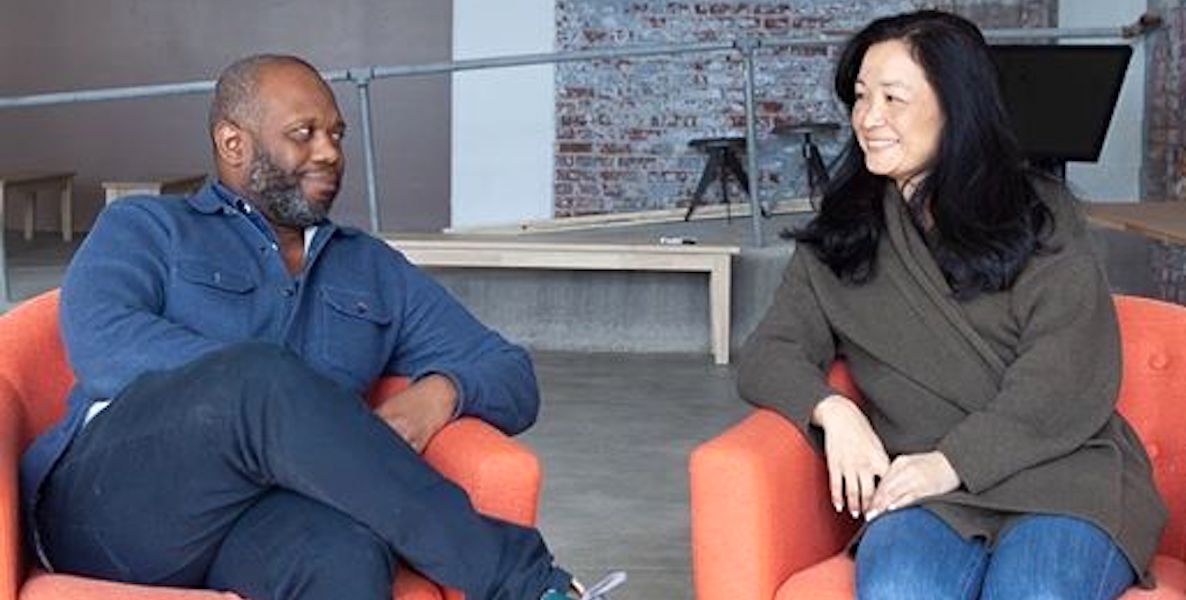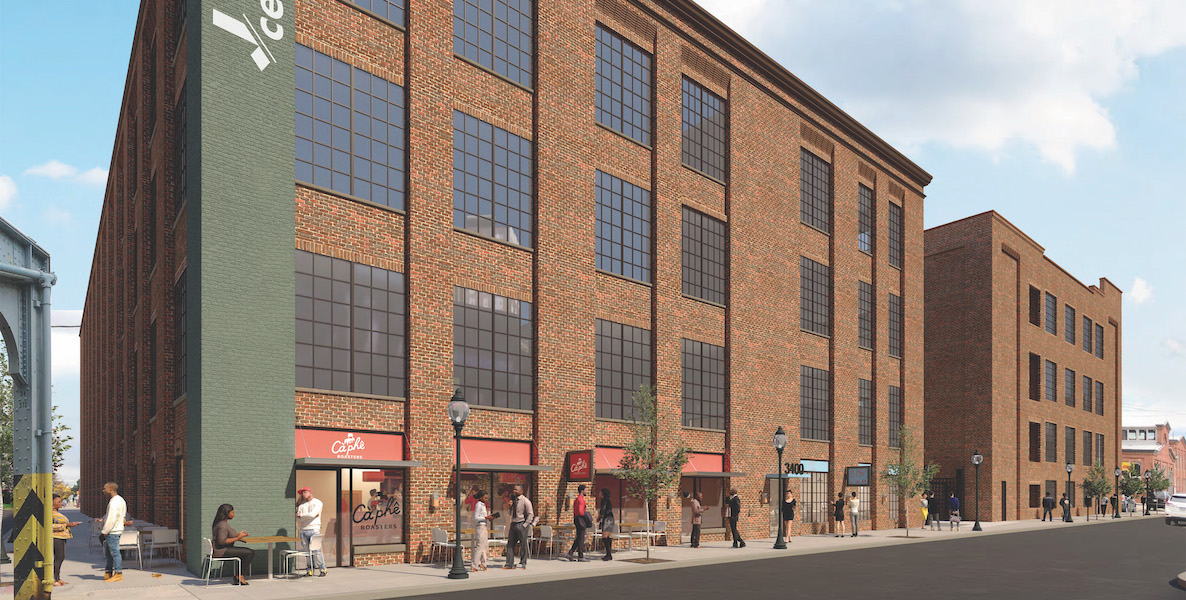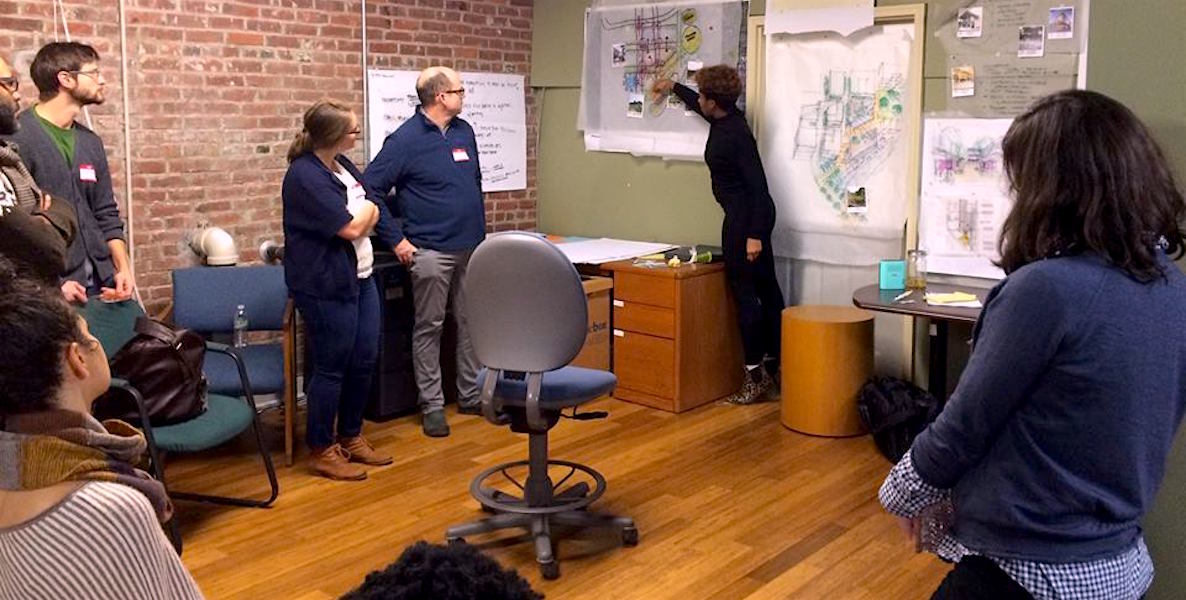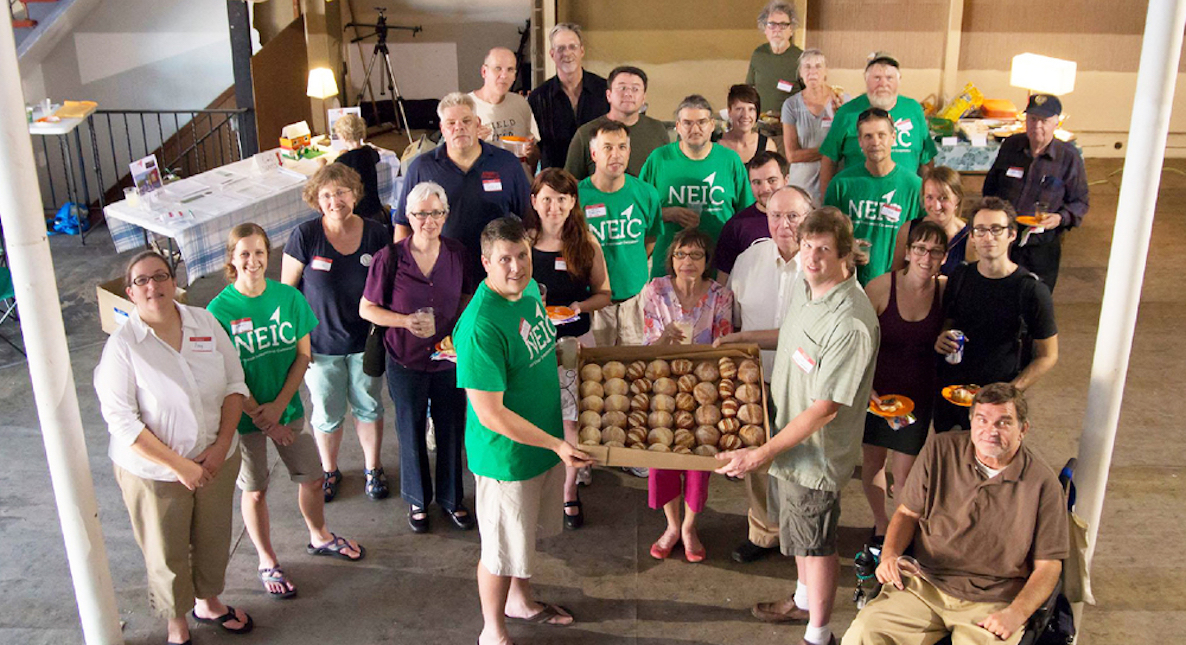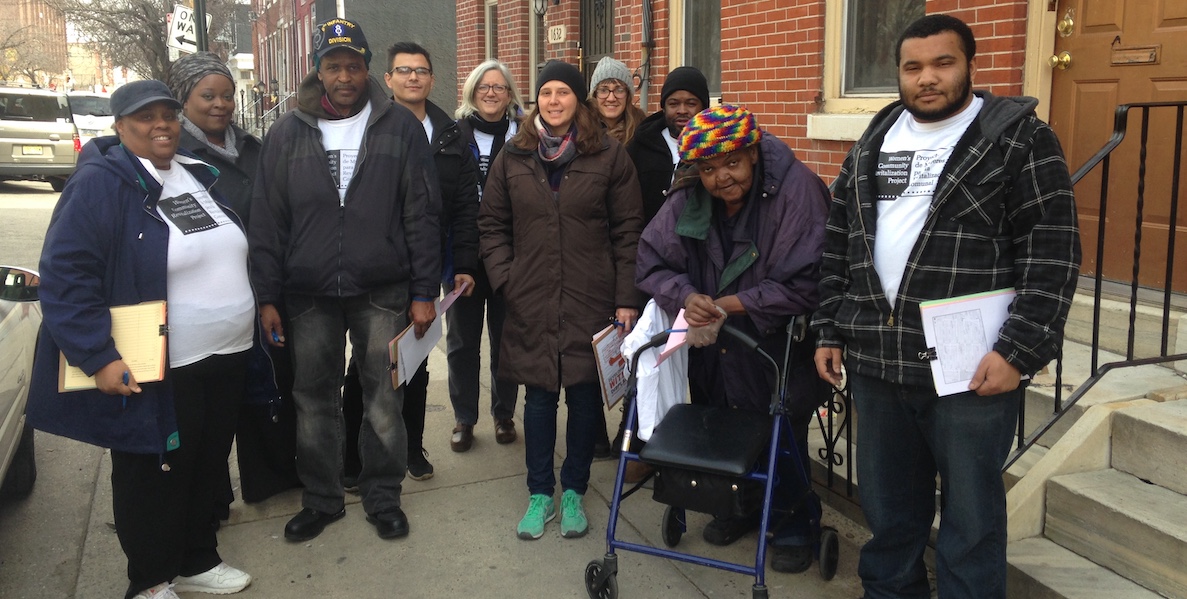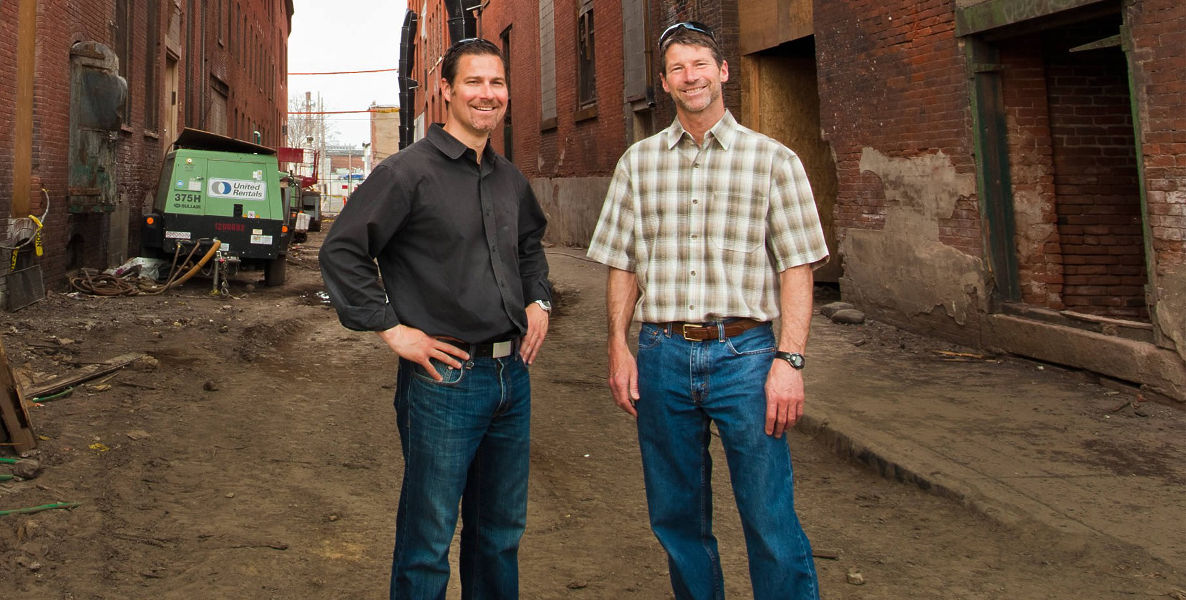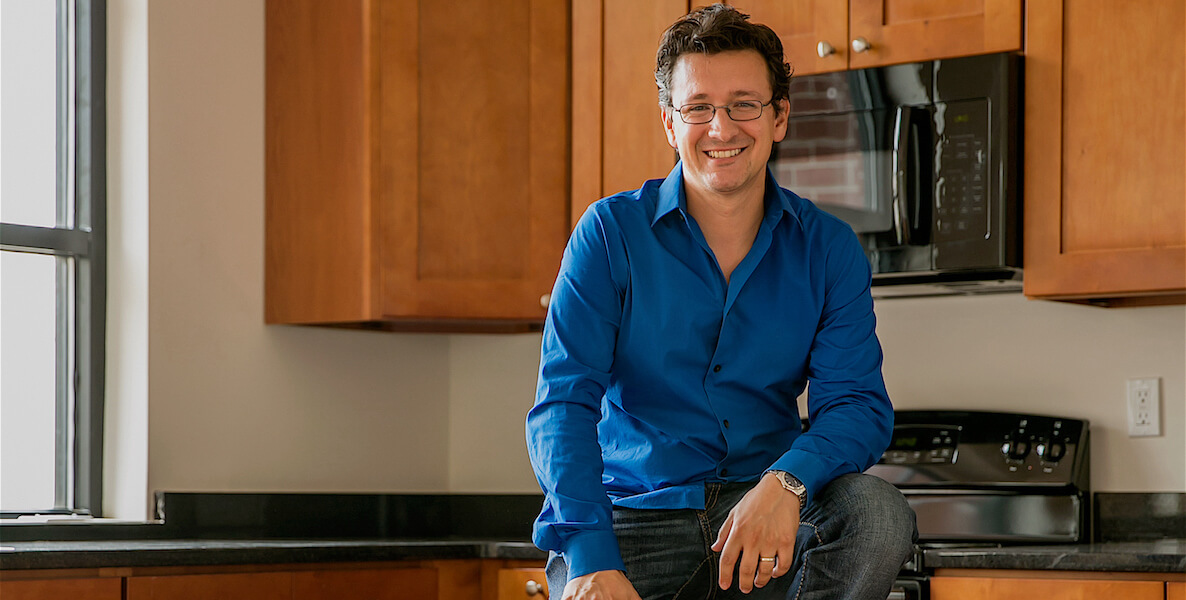Ryan Spak’s West Philly office doubles as an 80s museum, a shrine to the era during which the Philly native came of age.
Shelves around the room pay homage to the iconography of Spak’s younger days: There’s a Transformer here, Ninja Turtle figurines there; in a display case, Back to the Future mementos — a homemade hoverboard, a replica of the newspaper article declaring that Marty McFly had been arrested.
It could all come off as a quirky affectation, but with Spak, it rings endearing, and speaks plainly to the refreshing ethos that underlies his work: a belief that you can be successful … without being a total, well, Biff.
MORE ON LOCAL BUSINESSES DOING GOOD
First launched in 2011, Spak Group, which Spak co-owns and operates with his mother, Marsha, has evolved to focus on truly inclusive development. Take 5050 Baltimore Avenue, the first affordable housing developed in Philadelphia without public funds. Scheduled to open its doors this July, it includes 12 residential units and two commercial spaces, with nine market-rate units and three deed-restricted units (the deed restriction will last for the next 50 years, at 50 percent area median income, or AMI). Of the 12 residential units, 25 percent will rent at 60 percent AMI or less, with the most affordable unit being one that’s accessible for people with disabilities, for $795 per month.
Up next is a project called Wade Flats, which will be like a supersized 5050 Baltimore Avenue: 53 residential units, four commercial spaces, also with tiered affordable rents throughout.
RELATED: See more cool Spak Group properties
Given Spak’s appetite for entertainment, it’s no surprise that his work has also been an avenue into meaningful Hollywood-adjacent work: He was the real estate consultant on the film Concrete Cowboy, for which he spent three years navigating city agencies, finding the house used for Idris Elba’s character, and re-constructing the North Philly row house used to put a beautiful horse…in a living room. He’s now a founding board member of the nonprofit director Ricky Staub formed to raise money for the city’s Black cowboys, Philadelphia Urban Ride Academy (PURA).
And as Spak Group’s project roster grows, so too will its team of 11; there are plans to hire three more staffers this year, including a custodial role with a salary of up to $62,500 and health benefits. (You can circulate the job posting here.)
Of course, lots of Philly developers talk about inclusive development, of “welcoming feedback” and “listening to the community!” But Spak is quite literally of the community: He and his wife and kids moved to West Philadelphia in 2010—and that has been key to the warm reception he’s received in the neighborhood.
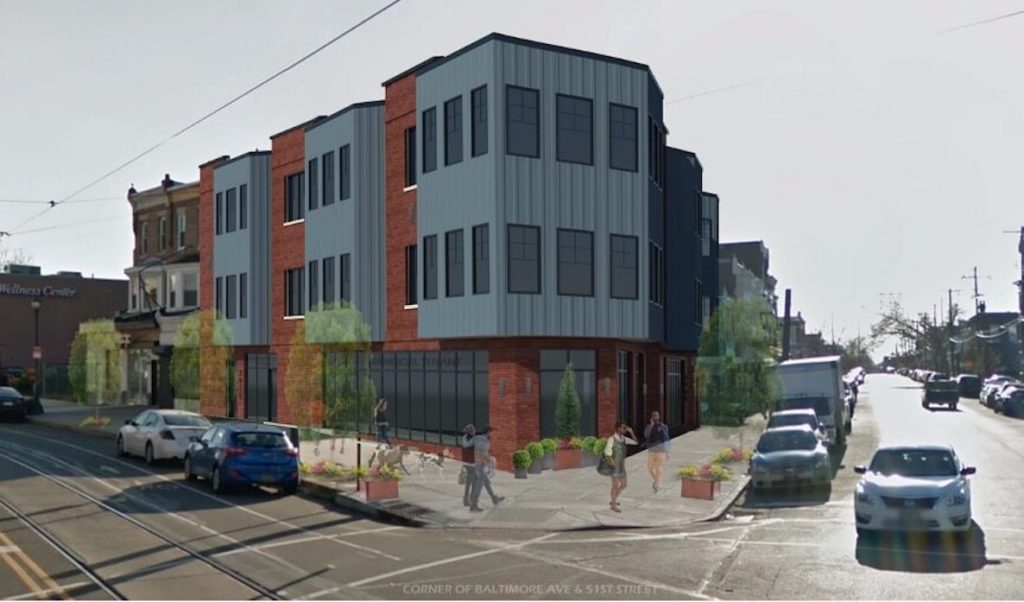
Gregory Benjamin, 51st Ward leader, sees Spak as a neighbor, first, and a developer second. “Ryan lives up the street from me, and he’s always been involved in the community. And that’s the touch that separates him from the average developer,” Benjamin says, acknowledging that Spak is in a difficult position. “He’s a white male, he’s a developer, and the average neighbor would see that as somewhat threatening. But for this man and his family to be able to sustain themselves over years in a neighborhood that can be volatile at times, without that volatility ever coming his way, that speaks to what the community thinks about him. He didn’t move down to 17th and Locust; he’s right in the heart of the matter.”
Benjamin says that if more developers operated like Spak — holding community meetings and actually incorporating community feedback — then communities would be less likely to see developers as threatening.
Not one to sugarcoat the challenges of operating the way he does, Spak sat down for a Zoom to talk about the cost of greed, bonding with his neighbors, and what it’s really like to work with your mother.
Jessica Blatt Press: You seem to have found a magic formula—a way to develop without alienating the community, while also being profitable. Why isn’t everyone in Philly approaching development this way?
Ryan Spak: There are multiple levels to that answer. The first is that we came to this formula because the world as it currently exists, in terms of equitable rent, pisses me off. The system doesn’t function very well. Affordable housing is not abundant enough. It’s too complicated. It’s too stacked with very expensive costs.
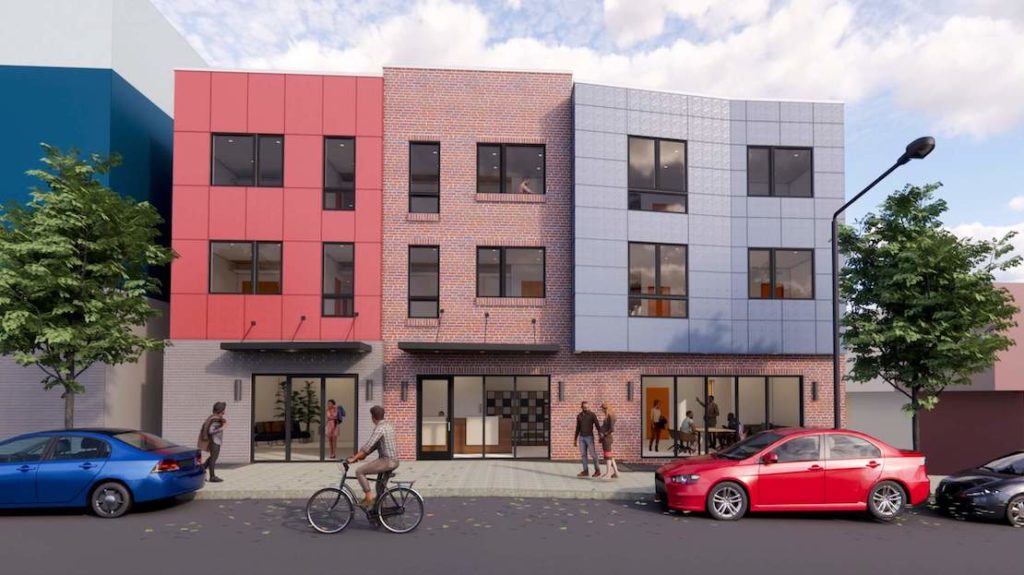
The other piece was: I’m a white guy who lives in West Philadelphia. When my family moved on to our block, it had been 50 years since a white family had lived there. And it became very apparent, in getting to know my neighbors, that I was becoming part of the problem as my real estate investments and my company began to grow. And so there was a pivot point: Were we going to be the gentrifier, which in my definition refers to the negative impacts of gentrification? Or were we going to be inclusive about the gentrification that was taking place? All of those things came from conversations with neighbors. All of these kinds of things happening simultaneously created this mission over the last several years that our company has undertaken.
Now, to your question about profitability: It’s gotten harder. For many reasons — most recently with skyrocketing construction costs. It was expensive to build in Philly before and it was a painful process. It’s even more so now, and it’s getting even worse. It used to be that a 2×4 [board] cost $5, and now it costs $11. And so, I would say that we do take a hit in some respects. But that’s part of the game. Can we give a little to get a lot?
If you are not greedy, and you buy intelligently, and then you are not greedy on the back-end in terms of what you’re charging your residents for rent, you can make it work. It’s not as magical of a formula as everyone thinks it is. It’s just not as profitable.
A lot of developers will claim that they have open lines of communication with the communities in which they’re developing — how has Spak Group made good on that?
It definitely helped that we were neighbors first. I don’t see this the same way that some other white folks moving into a neighborhood of historically Black families might see it. The block captain where I live has been there for almost 50 years — she grew up on that block, she’s raised her family on that block — and she dislikes the speeding cars the same way I dislike the speeding cars. We’re both out there on Saturdays cleaning the block because we can’t stand the trash. We both dislike the vacant houses that are on our block. It doesn’t matter that she’s been there for 50 years and is Black and I’ve been there for 11 years and I’m white. Doesn’t matter.
We handled it like it was a political campaign: We door-knocked, twice, with an eight-page flyer about the project.
I think the other approach has been [acknowledging that], yes, we are gentrifiers. Admit to the problem, and then have some really difficult conversations. And then from our perspective as a real estate company, it was [asking people] what do you want to see, and can we help to achieve some of the things that you want to see?
 Our project on Baltimore Avenue, which was a very complicated site, required seven different zoning variances. We went to all of the congregations around that building first. Then we went to the RCO [Registered Community Organization]. We did a design, we went back to the congregations and the RCO, and then filed our zoning permit. When we talked to the community, they said, Hey, the first thing we’re concerned about is affordability. The second thing we’re concerned about is accessibility, in terms of who gets to rent the more affordable units. The third thing was what kind of commercial tenants were going in and what the building was going to look like in terms of the rest of the block.
Our project on Baltimore Avenue, which was a very complicated site, required seven different zoning variances. We went to all of the congregations around that building first. Then we went to the RCO [Registered Community Organization]. We did a design, we went back to the congregations and the RCO, and then filed our zoning permit. When we talked to the community, they said, Hey, the first thing we’re concerned about is affordability. The second thing we’re concerned about is accessibility, in terms of who gets to rent the more affordable units. The third thing was what kind of commercial tenants were going in and what the building was going to look like in terms of the rest of the block.
So we began to address those things in our design and in our map, and then we showed them the map. And then we figured out how to build a building that would meet those requirements, and found financing partners who would help us. [The nonprofit] PIDC Philadelphia financed the entire project, and there’s private investors who went in with us as investors. There’s no public money—we didn’t go after tax credits for that project. But that was a year’s worth of conversations, and prior to the zoning hearing, and the public meeting, we handled it like it was a political campaign: We door-knocked, twice, with an eight-page flyer about the project.
Was it time consuming? Yeah. Is it a painful process? Yeah. But if we’re going to be a neighborhood business that’s going to impact the community, far greater than a restaurant ever would, then we’ve gotta be out there. And that has separated us in some ways from other developers.
What projects are next in the Spak pipeline?
RS: We’re working on three projects, kind of simultaneously. The next up is Wade Flats, which is taking the inclusionary housing model from Baltimore Avenue and basically increasing it threefold, to 53 residential units. Renters are the first folks in a community who are usually gentrified out: They don’t own anything, when their leases come due landlords see an opportunity to raise rent and it all goes sideways. And so what we wanted to do with Wade Flats was give an opportunity for folks at different economic levels to be able to afford to rent these units. And so there’s units at 50 percent AMI, 60 percent AMI, 70 percent, 75 percent AMI, and 80 percent AMI — 80 percent being what I would consider the average rent for the University City district area, but the top of the marketplace for us.
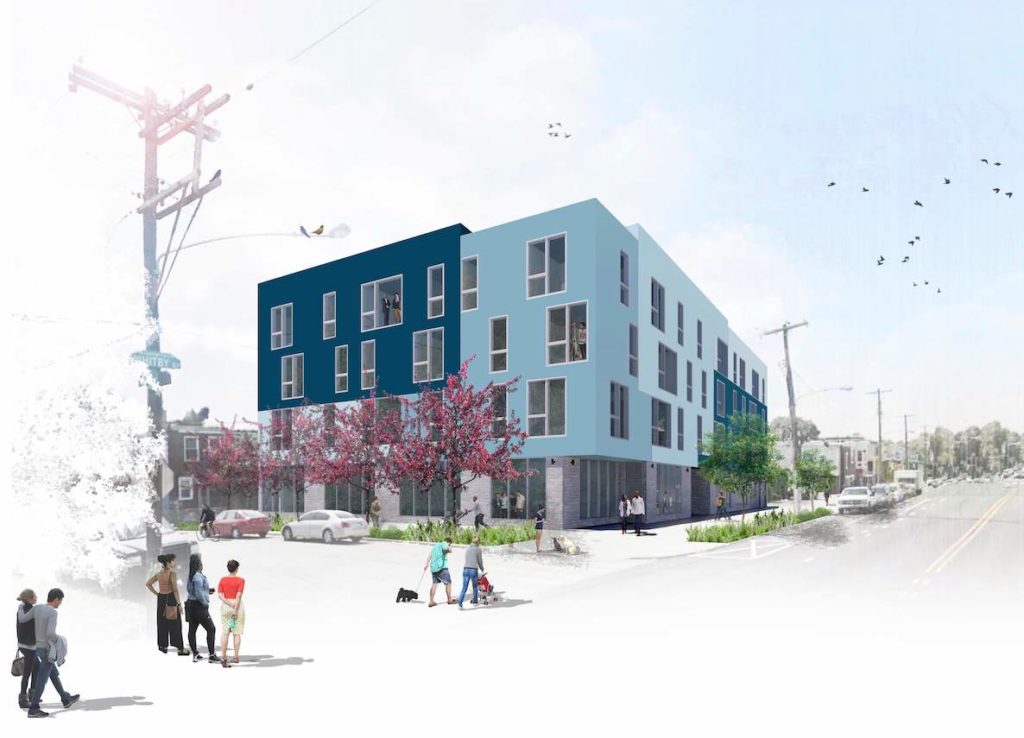
While we’ve been doing that, we closed in September on a pretty spectacular opportunity in Strawberry Mansion called Mansion Court. It was an affordable housing development that was done in the 90s. In 2012 it was purchased by another nonprofit, We came on board as a service manager five years ago, and began talking with the nonprofit about finding a way to purchase these properties. And then in September of 2020, we figured out how to do so in partnership with Bryn Mawr Trust — so, again, no public money. And it will preserve 44 affordable rentals in what is basically a massively gentrifying neighborhood in Strawberry Mansion with rents somewhere between $850 and $950 for 2 bedrooms, and $975 to $1000 for three bedrooms.
So all three of those projects are in the works as we speak. It’s definitely not boring here.
Can you explain why it’s meaningful that you don’t use public money?
RS: I can tell you why we don’t want to use public money. There’s a lot of caveats to public money, prevailing wage being one of them. That’s not a knock on prevailing wage or union, it’s just really, really, really expensive. And so that makes it really really hard to build more affordable rents if you’re going to increase your cost 50 to 75 percent.
One of the other caveats is that you need a significant amount of assistance in terms of consultants. As a small company, it wasn’t a cost that we could outlay up front. If we were going to invest, it wasn’t going to be in consultants, it was going to be in properties.
Then there’s the piece as to where the money actually goes. I hope my friends at the Redevelopment Authority don’t hurt me for saying this: You have RFPs from the Redevelopment Authority that talk about affordable housing at 80 to 120 percent AMI, you have public funds going to projects at 80 percent AMI — that’s bullshit. That’s nonsense. And this is my personal opinion. There is an opportunity — if legislation coupled with incentives, coupled with density, there’s opportunity there for developers to build workforce affordable housing without subsidy. And so my personal opinion and this company’s opinion is the public money should go to those who most need it — 20 percent, 30 percent, 40 percent AMI.
If you’re going to give money away, give it to those who need it most. And then incentivize the industry in a multitude of ways, whether that’s a tax abatement, whether that is faster permitting processes, whether that is less restriction on reporting, on the backend, like $20,000 commission reports.
And then the last piece is there’s just not enough of it. There’s just not enough affordable housing dollars and it doesn’t matter whether it was President Obama’s administration or the previous administration, there’s just not enough money. So we were looking for another way to be creative about how to achieve more equitable rent without having to dip into an already-stressed system.
If you’re going to give money away, give it to those who need it most.
Affordable housing can have a negative connotation in terms of aesthetics, but your properties don’t skimp on amenities or design. How do you pull that off?
The best example that I can provide to you is a project that we finished at the beginning of 2020, at 317 North 52nd Street. It was a 100-year-old warehouse that was zoned for single-family — because, well, welcome to Philadelphia. And we looked at that building and said What’s the market rent now for buildings that aren’t renovated, do not have many features and many amenities, and can we charge just $100 more than those rents, and add all these amenities without harming the basic community itself? Without really gentrifying the community? And the best way that we could figure out how to do that was to partner with organizations that helped sponsor and help guide folks with housing insecurities.
And so we built this building, and we had it pre-inspected and pre-approved for vouchers for PHA. And that building I think is really impactful because when you think of the voucher program, you don’t think of higher-end units with a significant amount of amenities. But that building has central air, granite, four-piece kitchens, indoor bike parking, buzz-in security systems, LED lighting, fully-tiled showers to the ceiling, free laundry. And the one-bedrooms rent for somewhere between $845 and $900. And the four-bedrooms rent between $1400 and $1500. And 11 of the 14 units are voucher holders. I look at that building and say if we can do that, and provide what would be considered a higher-end amenities for folks that are going through the voucher program, well then we can do that anywhere.
What’s your mindset when it comes to your commercial tenants?
We try to be as conscientious as we can about our commercial tenants. The work that we did on 52nd Street is reflective of where our heads are at. We did several buildings at the intersection of 52nd and Larchwood across from Malcolm X Park. And when we bought the first building there off of Craigslist, about seven years ago, it became very apparent that the park [should be] the heartbeat of the neighborhood. The only real interaction we saw was between a corner store and the kids that were running back-and-forth grabbing ice cream and sodas. So one of the things that we wanted to do was create this more walkable corridor.
So the first thing we wanted to do was bring foot traffic. And so we thought the best way to do that was not a coffee shop but office space. And so through a connection that we had at The Enterprise Center, we were connected with a nonprofit called The Philadelphia Student Union, which is an amazing organization. And we helped build their headquarters. and that brought somewhere between 50 and 100 kids in and out of that first floor space every week.
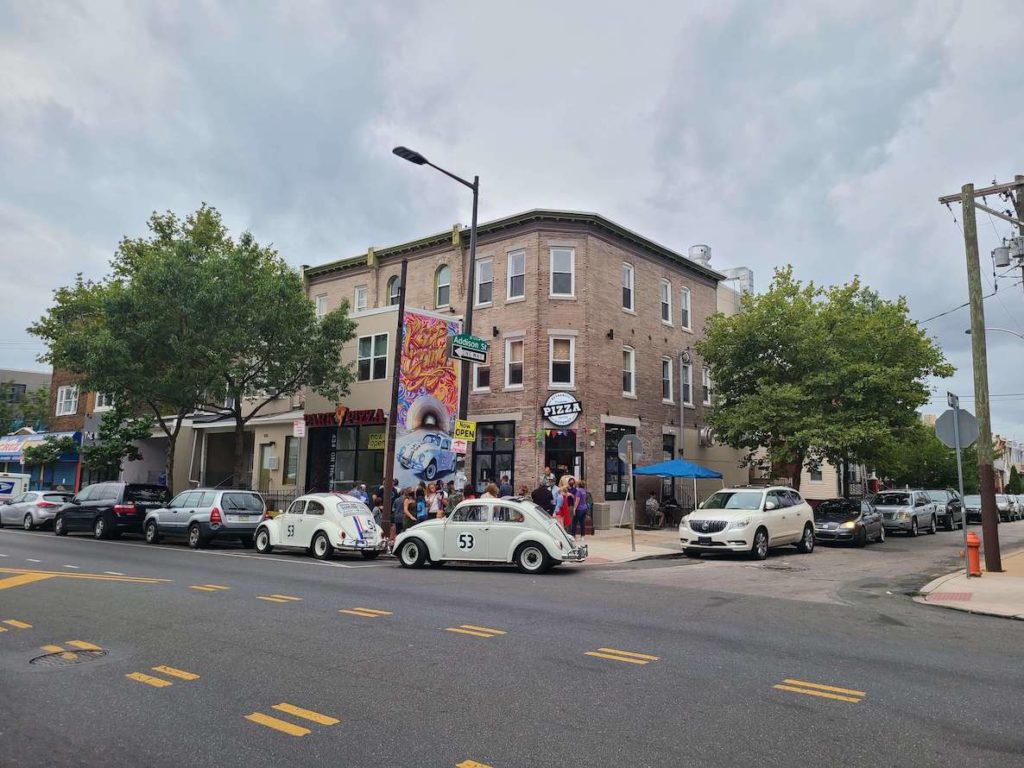
The next piece was we needed outdoor seating, we needed restaurants, and that took a whole lot longer to achieve, but we had a pizza restaurant open in the middle of the pandemic! We have another restaurant that’s currently being built out. We did murals on two out of the three buildings. And what we’ve now seen is that the other owners have also brought life to their spaces. We now have an LGBTQ-owned coffee shop, we now have multiple retailers who survived the pandemic all on the 400 and 500 block of South 52nd Street. It is now a very small corridor and I am looking very forward to seeing how the park and its residents interact with the restaurants and the retail.
We also didn’t want to double up what was already in existence. We don’t need another Ethiopian restaurant because we already have several great Ethiopian restaurants. We don’t need another hair salon, we already have multiple hair salons that are owned by folks that live in this community. And so we’re opening a women-owned mental health therapy center run by two owners who live in this community. It will open this summer.
You have so much passion in your voice when you talk about your community—if you weren’t doing this work, what do you think you would be doing?
My wife would probably kill me, but I’d probably be running for office.
Speaking of family, what is it like to work with your mom?
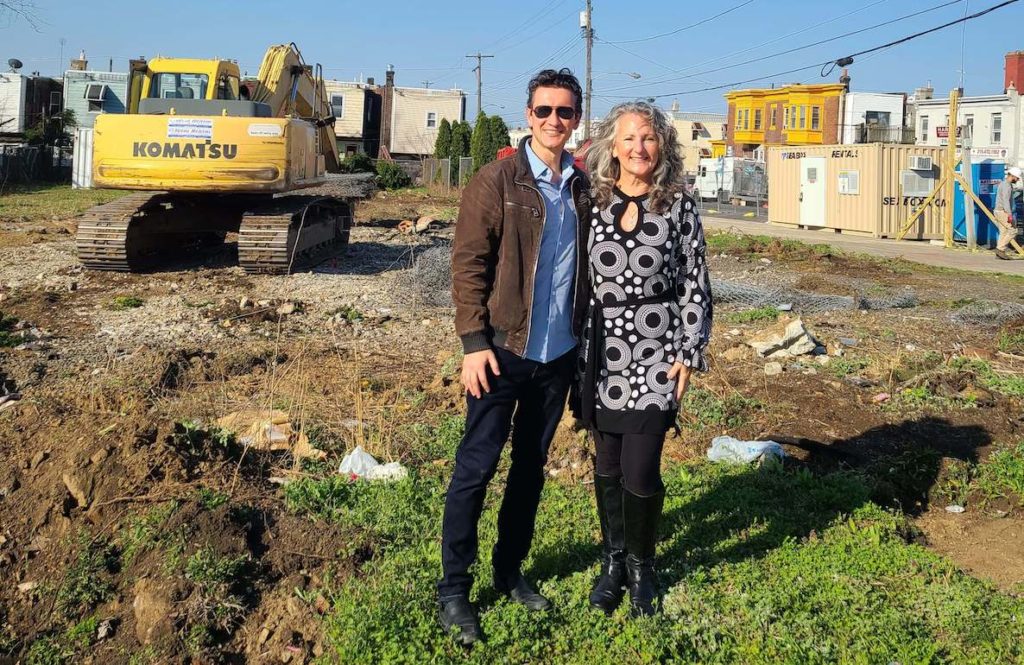
This is actually the second business my mom and I have done together. The first was painful. It was a janitorial company. It was a very humbling experience. But she and I have a really really wonderful, unique relationship. She’s been an entrepreneur her entire life. Even when I was a child growing up, she had her own business that reconditioned washers and dryers. My mom can literally take apart a washing machine and put it back together. She’s really an incredible person.
I love this town, I’m from here. I would bleed for this town. But it scares the living crap out of me that they are going to make it very difficult for us to achieve our mission.
But also: You’re working with your mom, so one minute we’re talking about Thanksgiving dinner and the next thing we’re arguing over budgets. It’s definitely a unique relationship. She and I have learned and are still earning the business together.
Anything you want to add?
I’ll say two things. One, I hope other developers follow this model. I think it would be helpful to us as an industry if they did.
And then I would really, really, really hope that City Council gets a better understanding of the capital stack that it takes to put a building in the ground. And to understand that the real estate industry — whether that is home sales, whether that is development, whether that is product and delivery — it’s been the lifeblood of our economic situation. We’ve got eds and meds, which has always been stable for us and is expanding at a rapid pace. But if you look at other industries — it’s not manufacturing [driving us], it’s real estate. And the city has taken a stance that developers have to pay. And there are economic factors at play that, if they hit this industry too hard, it’s either going to move [to other cities], or it’s not going to achieve what their goal is.
I have had this conversation with councilmembers, I testified at the inclusionary housing hearing when the zoning bill came up that it was a weak bill. I still believe that. We know how to build better and faster than the city does. So help us help you, and help the situation. One of the things that I’ve been asked about is the fact that folks don’t trust developers to ensure that the more affordable units go to people in the community. Ok, great. Let’s play matchmaker. Let’s hook up a developer with a CDC in that neighborhood, let’s do a master lease from the CDC; the city of Philadelphia gives the CDC vouchers. And let the CDC ensure that those affordable units go to people who live in that neighborhood. You want to solve a problem? Solve it.
Wade Flats’ first phase will cost us a little more than $6 million to put in the ground. If we spend that money wisely, and we put it into companies that are based in Philadelphia, that project alone becomes its own little ecosystem, little economic ecosystem. If I hire companies that are located in the 19143 zip code, I can ensure that that money stays in this community. We don’t need $400 million in bonds that we then have to pay to investors. We don’t need more tax money. You need good legislation that incentivizes good development. But instead, it becomes a war between the real estate industry and city council and I’m baffled by it.
I love this town, I’m from here. I would bleed for this town. But it scares the living crap out of me that they are going to make it very difficult for us to achieve our mission. And I don’t want to build luxury housing at luxury prices. That’s not what we want to do. If we wanted to do that, we would’ve done it already.
You sure you don’t want to run for mayor? Be like Back to the Future’s Mayor Goldie Wilson?
Talk to me after I build Wade Flats. Let’s get the building in the ground first.
This interview has been edited and condensed.
The Citizen is one of 20 news organizations producing Broke in Philly, a collaborative reporting project on solutions to poverty and the city’s push towards economic justice. Follow the project on Twitter @BrokeInPhilly.



